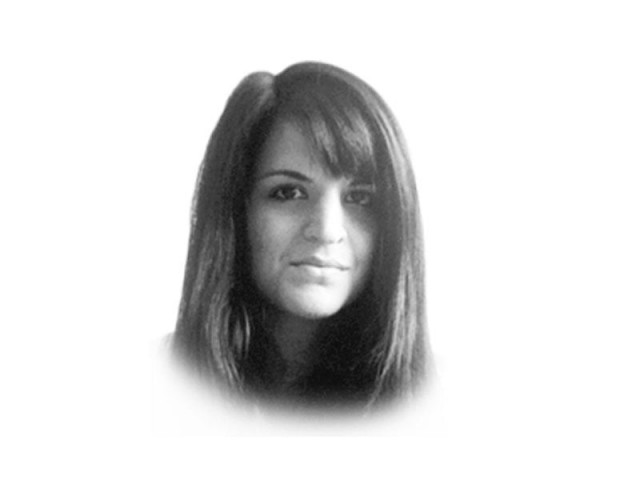To be a journalist in Pakistan
The threat to journalists comes from terrorists, but also from the powerful security establishment.

The writer is a columnist based between Karachi and London. She was formerly a staff writer at the New Statesman
The faults of the current government may be many and various, but it has certainly done a lot to further freedom of expression, a right which is laid down in the Constitution of Pakistan. At times television channels and newspapers have been criticised for behaving unethically, but particularly in the last decade, they have played a significant role in uncovering corruption and acting as a check on power. Embezzlement in the Pakistan Railways, bribery leading to $500m losses at the Pakistan International Airlines, and the rental power projects corruption case were all unveiled by journalists.
However, while reporters critical of the government may face less official interference today than they did before the return to civilian rule in 2008, the picture is not universally positive. Last year, a United Nations report ranked Pakistan as the second-most dangerous country in the world for journalists. The Committee to Protect Journalists, an independent international body working for press freedom, ranked it as the most dangerous in both 2010 and 2011. Reporters Without Borders, another independent body, consistently ranks Pakistan in its top 10 most hazardous places for journalists. The high death toll in the profession explains why. Since 2000, more than 90 journalists have been killed in Pakistan, and hardly any of the cases have been solved. Someone was sentenced for the murder of Daniel Pearl, the American journalist kidnapped and killed in Karachi in 2002, but this was the exception rather than the rule. Most journalists dying in the pursuit of their profession are Pakistani citizens rather than foreign correspondents, and their killers have not been held to account. At least eight journalists were killed in the country in 2012 alone, including four in the month of May.
One of the murders that took place that month was of Razzaq Gul, an Express News correspondent who was found, riddled with bullets, in Balochistan. Some have alleged that the security forces were involved. Another was Abdul Qadir Hajizai, who was shot in the province by armed men on motorbikes, an attack thought to be carried out by the Baloch Liberation Front. A high profile example of the threat to journalists came late last year when a bomb was found in Hamid Mir’s car. It was blamed on the Taliban.
Anyone who has visited a newspaper office recently will be aware of the heightened risk. The attack on Malala Yousufzai in October saw sustained negative press for the Taliban. The extremist group promptly threatened media offices unless they got ‘balanced’ coverage, leading to ramped up security measures. It is unsurprising that the threat was not taken lightly. In June, Taliban gunmen had shot at the building of Aaj TV, an Urdu-language news channel, wounding two guards. The Taliban have warned repeatedly that media outlets will be targeted as long as coverage fails to reflect its positions and justifications.
The Human Rights Watch World Report, which came out this week, notes that “a climate of fear impeded media coverage of the state security forces and militant groups.” The report suggests that journalists avoid reporting on “human rights abuses by the military in counterterrorism operations”. The threat to journalists comes from terrorists, but also from the powerful security establishment. Politicians of all stripes are freely criticised in the media, but it is more unusual to read investigations into the military or its senior officers. There appears to be a level of self-censorship, whereby journalists know which areas they can push and which they can’t.
Pakistan is home to an array of violent militant groups, pushing for a greater hold on society. To an extent, the dangers faced by journalists are the same as those faced by every other citizen: an increasingly poor law and order situation where no one can really be protected. This is demonstrated by the fact that so many of last year’s journalist deaths took place in Balochistan, a province where the writ of law is practically non-existent after years of a bloody tussle between separatists and security services.
While non-state actors such as the Taliban, Baloch nationalists and other militant groups pose a threat to the freedom of Pakistan’s press, elements of the state itself also play a part. The military and intelligence establishment is over-powerful, and the relationships between state bodies are broadly dysfunctional. As well as the military and civilian divide, the struggle between the government and the judiciary has been well documented. An independent judiciary is a crucial part of a functioning democracy, and in some respects, the current outfit has fulfilled its task of acting as a check on governmental power. However, civil society campaigners have noted that the judiciary is actually impinging on free speech, using contempt of court laws to restrict the publication of negative stories about — you guessed it — the judiciary.
Against this context, is freedom of expression really possible? Most societies accept certain limits on free speech: for instance, wilfully misrepresenting facts, or inciting racial hatred. In Pakistan, blasphemy laws and considerations about morality set the parameters. That aside, there is a commendable commitment from the government to the principle of free speech and a free press. This is a fundamental part of a healthy democracy. But it is only one part. Another crucial aspect to a functioning civil society is law and order, and the safety of citizens. Until that can be guaranteed, it is likely that self-censorship on certain topics will continue. After all, journalists are only human.
Published in The Express Tribune, February 4th, 2013.















COMMENTS
Comments are moderated and generally will be posted if they are on-topic and not abusive.
For more information, please see our Comments FAQ